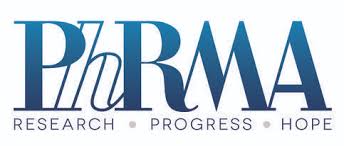
The Pharmaceutical Research and Manufacturers of America (PhRMA) said it has filed the 2018 Special 301 submission, calling for the U.S. Trade Representative to take a firmer approach in tackling Korea’s intellectual property (IP) barrier.
PhRMA is a trade group representing companies in the pharmaceutical industry in the U.S., and its primary goal is to conduct effective advocacy for public policies that encourage the discovery of essential, new medicines by biopharmaceutical research companies.
In the submission, the industry group requested authorities to designate Korea as a “Priority Foreign Country” (PFC), the worst classification in the USTR’s Special 301 report. The report has five classifications, including priority foreign country, priority watch list, watch list, section 306 monitoring and status pending.
Special 301 is an annual report presented by the USTR. It identifies countries that do not provide adequate and effective protection of intellectual property rights or fair and equitable market access to U.S. companies that rely upon such rights.
After designating a country as a PFC, the USTR must decide whether to commence an investigation within 30 days of the designation. If the agency chooses to initiate an investigation, the probe must conclude within six months and decide whether to remove the country from the list or take strong retaliatory steps against it.
“PhRMA and its member companies remain concerned with several intellectual property and market access issues in Korea,” the association said in the report. “Korea’s drug pricing policies severely devalue U.S. IP and favor Korea’s pharmaceutical industry at the expense of U.S. companies.”
As a result, America’s cutting-edge R&D and manufacturing sectors are losing out, and the upshot is fewer U.S. jobs, exports, and fewer new medicines for patients worldwide, it added.
The association advocated that the USTR should make clear that Korea’s pricing practices are inconsistent with its commitments under the U.S.-Korea Free Trade Agreement.
Also, the advocacy group listed other critical issues of concern, including discriminatory government pricing and reimbursement policies, patent term restoration and patent enforcement.
“Korea restricts the prices of innovative medicines by valuing them according to the prices of older medicines or prices in poorer countries,” PhRMA said. “Given the vast amount of medical research that occurs in the United States, Korea seeks to benefit from this research without paying its fair share.”
It is also inconsistent with Korea’s commitments under the bilateral free trade agreement to value U.S. innovation appropriately, to ensure that patent owners can reap economic rewards, and to guarantee market access free from price distortions, it added.
The group also criticized a recent Korean Patent Court decision that has undermined the purpose and value of patent term restoration by impermissibly narrowing the subject matter eligible for a compensatory period of exclusivity.
“By limiting the restoration only to the innovative product approved, rather than to the patented invention related to the product, the decision allows competitors to seek marketing approval for variations of the product during the restored period that would otherwise infringe on the innovator’s patent,” the advocacy group said.
Regarding patent enforcement, the organization said although Korea has implemented the framework of a valid patent enforcement system, some cases of concerns remain.
“Korean law only provides for a nine-month sales stay. It is unclear whether this will be an adequate period to resolve a patent dispute before an infringing product is allowed to enter a market,” PhRMA said.
The PhRMA also requested the USTR to designate Canada and Malaysia as a PFC, while urging 11 countries – India, Indonesia, Japan, Thailand, Russia, Turkey, Argentina, Brazil, Chile, Colombia and Saudi Arabia – to be put on the Priority Watch List.

